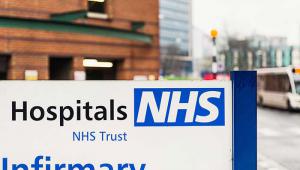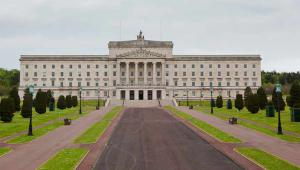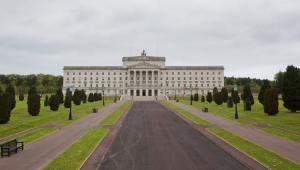The most significant aspect of the latest Northern Ireland deal is that it marks a move away from what has been termed the ‘mandatory coalition’, in which all the main parties form the government. Instead the new agreement – termed ‘A Fresh Start’ – has been negotiated primarily by the two largest parties, the DUP and Sinn Fein, together with the UK and Irish governments. Northern Ireland’s other main parties - the UUP, the SDLP and Alliance – are now considering the document, which they complain was given to them almost on a ‘take it or leave it’ basis.
One important section of the agreement introduces the concept of a formal opposition within the Northern Ireland Assembly. The leading contender for such a role is the UUP, which walked out of the NI Executive after a murder ascribed to the Provisional IRA. The SDLP, under its new leader Colum Eastwood, may be inclined to work with the UUP in opposition after the next Assembly elections, scheduled for May next year.
But ‘A Fresh Start’ contains much more than just new political arrangements. Some £500m is being made available from the UK government, half of it to finance efforts to eradicate paramilitary crime. A new cross-border task force will bring together the Police Force of Northern Ireland, the Garda, Ireland’s Revenue Commissioners and HMRC. More than £200m of UK government money will go to tackle fraud and error in the handling of benefits claims.
The issue of benefits – specifically welfare reform – was the other main reason, along with paramilitary crime, preventing the NI Executive operating properly for the past year. A deal, of sorts, has now been worked out, which will see the Westminster government impose benefits cuts on Northern Ireland. This allows local parties to avoid blame for the cuts, while ensuring their budget this year balances.
Alongside this, the Executive will spend £585m to mitigate some of the worst effects of cuts to benefits and tax credits. A working party, led by Professor Eileen Evason, will recommend how best those funds should be spent. It has already been decided that the bedroom tax will not apply in Northern Ireland.
A cut to the corporation tax rate in Northern Ireland is to be introduced in April 2018 and constitutes another big cost to the Executive’s budget. The loss of tax revenue to HMRC will be met by the NI Executive. It has been agreed that the new Northern Ireland rate will be 12.5%, the same as in the Irish Republic. The current rate in the rest of the UK is 20%.
In order to finance the cost of a lower corporation tax rate and more generous welfare support, the Executive will have to make difficult spending cuts. There is agreement in principle to achieve efficiencies in health, education, justice and social housing. In practice, this is likely to require the closure of hospitals and schools, to eliminate excess capacity. It also places a larger question mark over the future of the Housing Executive, established in 1971 to ensure the fair allocation of social housing. One option is to transfer the Housing Executive’s stock of homes to housing associations, which would operate on lower overheads.
A report commissioned from Ulster University will consider ways in which the costs of public services are inflated by Northern Ireland’s divided society. This could lead to further reforms and rationalisations. In addition, there is agreement to extend the online provision of public services. An existing scheme to promote voluntary redundancies in the public sector is to continue and will have led to 7,410 public workers leaving their jobs by March next year.
Should these reforms be insufficient to provide a sustainable and balanced budget, the agreement’s signatories are to implement other “revenue raising measures”. That seems likely to require the adoption of charges for water supply, which is currently free. The introduction of water charges in the Irish Republic has seen massive protests and refusal-to-pay campaigns.
Limited new infrastructure spending has been approved. At least one stretch of the Derry to Dublin road is to be upgraded, with financial support from the Irish government. The Dublin to Belfast rail line will also benefit from additional funding, as may the Narrow Water Bridge – to link the North’s County Down with the South’s County Louth. A new police and fire training college, repeatedly delayed, now seems likely to go ahead.
The agreement provides the blueprint for the restructuring of government. Twelve departments are to become nine. It is also intended that the Assembly will become a more effective chamber, in particular through restrictions on the use of a blocking mechanism called Petitions of Concern. Their use has prevented various measures passing that had achieved a simple majority in the Assembly – including welfare reform and gay marriage.
Worryingly, though, some of the most difficult challenges remain unresolved. Past attempts at creating a stable government in Northern Ireland foundered on the region’s three festering sores: the past, flags and parades. ‘A Fresh Start’ specifies that the issues of flags and parades will be handled (somehow) by the Assembly. Meanwhile, dealing with the past – including disclosure of security forces’ collusion with Troubles’ killings and the criminal prosecutions of those who committed Troubles’ murders – is simply too difficult to reach agreement on, so is parked.
In a joint statement, first minister Peter Robinson, who has announced he will step down after the deal, and deputy first minister Martin McGuinness said: “At the heart of this agreement is our common commitment to a better way of doing business together.” Secretary of state Theresa Villiers said that the agreement “represents the opportunity for a fresh start for the Executive and for devolution”.
Judging by the tensions and conflicts that have continued to rip apart Northern Ireland’s political system even since the Good Friday Agreement seventeen and a half years ago, that is an optimistic assessment. But optimism is perhaps the most vital ingredient if Northern Ireland’s political system is at last to be made to work.



















